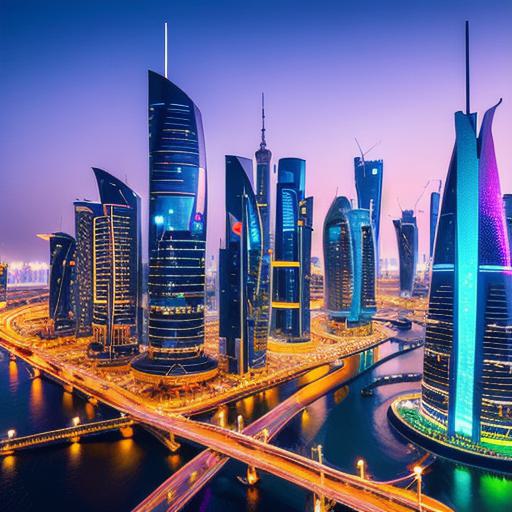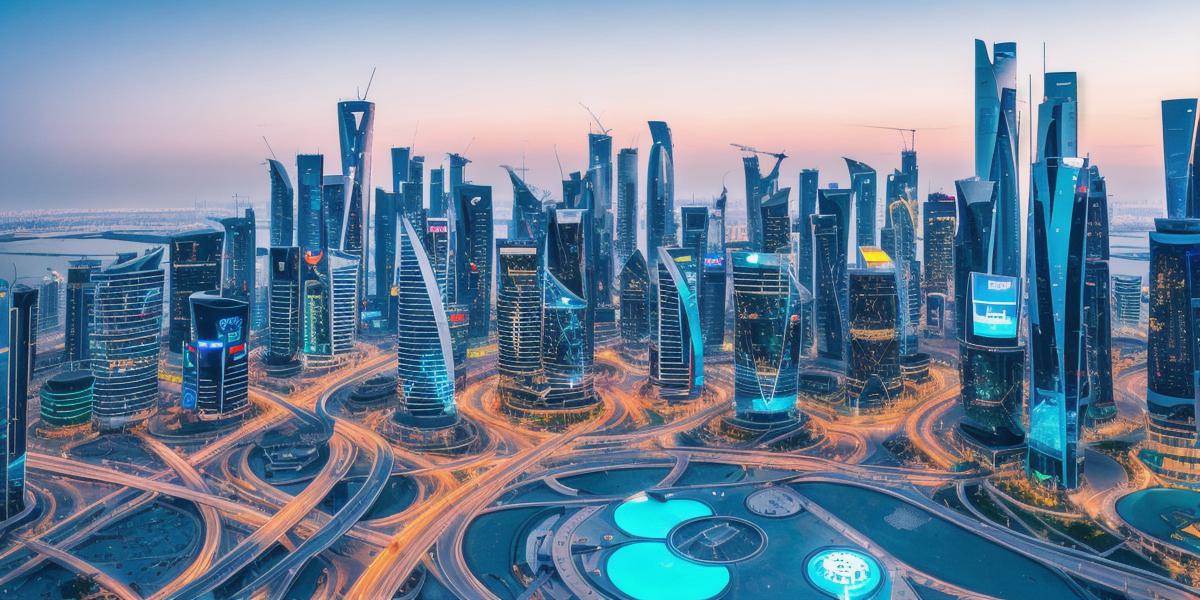Web3 technology has the potential to revolutionize the way we interact with each other and with our world. From decentralized finance (DeFi) to non-fungible tokens (NFTs), blockchain, and smart contracts, Web3 technologies are transforming the financial, creative, and administrative sectors across the globe. In this article, we will explore the future of Web3 technology in Qatar and the opportunities and challenges that come with it.

Web3 Technology in Qatar: An Overview
Qatar is one of the world’s fastest-growing economies, with a GDP of $216 billion in 2020 and a projected growth rate of 4.8% in 2021. The country has been actively investing in technology to enhance its economic growth and diversify its economy. Qatar has implemented a number of initiatives aimed at promoting innovation and entrepreneurship, such as the Innovation and Entrepreneurship Authority (Qatar SME) and the Startup Qatar program.
In recent years, Qatar has shown significant interest in adopting Web3 technologies. For instance, Qatar Investment Authority (QIA) launched a Web3-focused investment fund to support the development of innovative technologies in the country. The government has also partnered with major tech companies to explore the potential of blockchain and Web3 technologies in various sectors, including supply chain management, healthcare, and transportation.
Opportunities for Web3 Technology in Qatar
The adoption of Web3 technology in Qatar presents a number of opportunities for entrepreneurs and developers. The country’s strong economy, favorable business environment, and diverse economy provide an ideal backdrop for innovation and entrepreneurship. Here are some key areas where Web3 technology can add value to Qatar:

- Decentralized Finance (DeFi) – DeFi applications have the potential to transform the financial sector in Qatar by providing more secure, transparent, and efficient ways of exchanging value. For instance, a decentralized exchange (DEX) can facilitate peer-to-peer trading without intermediaries, reducing transaction costs and improving liquidity.
- Non-Fungible Tokens (NFTs) – NFTs are unique digital assets that can represent anything from art to real estate. They have the potential to revolutionize the creative industries in Qatar by providing artists, musicians, and other creators with new ways of monetizing their work.
- Supply Chain Management – Blockchain technology can improve supply chain management in Qatar by increasing transparency, reducing costs, and improving traceability. This can be particularly useful in industries such as logistics, agriculture, and energy.
- Smart Contracts – Smart contracts are self-executing contracts that can automate a wide range of transactions, from property transfers to insurance claims. They have the potential to reduce the need for intermediaries and increase efficiency in various sectors.
Challenges for Web3 Technology in Qatar
While Web3 technology presents many opportunities for Qatar, it also poses some challenges that need to be addressed. Here are some of the key challenges:
- Regulatory Framework – Developing a clear and effective regulatory framework is critical to the success of Web3 technologies in Qatar. The government needs to strike a balance between fostering innovation and protecting consumers and investors.
- Technical Expertise – Developing Web3 applications requires technical expertise that is currently scarce in Qatar. To overcome this challenge, the government can invest in training programs and partner with international companies to attract talent.
- Adoption – Convincing people to adopt new technologies can be challenging, particularly when there are concerns about security and privacy. The government needs to educate the public on the benefits of Web3 technology and address their concerns.
- Cost – Developing and implementing Web3 applications can be expensive, particularly for small businesses and startups. The government can provide funding and incentives to encourage adoption and innovation.
Summary
Web3 technology has the potential to transform Qatar’s economy and society in numerous ways. From DeFi to NFTs, blockchain, and smart contracts, Web3 technologies offer innovative solutions
